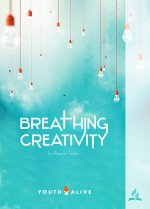A typical day. You wake up in the morning, wash your face, have your breakfast, put your shoes on, and then the "madness" begins. Whether you’re off to work or to classes, wherever you are, there’s work to do. Tasks piling on tasks. Your boss tells you he’s leaving for a conference, and you’re in charge of the office. At college, your least favourite teaching assistant asks you to submit extra-credit work, and you’re left speechless, as you wonder to yourself, “Will I ever survive all off this stress?”
Of course you will! According to recent research, reading is one of the best ways to relax, and even 6 minutes a day could lower the stress levels by more than two thirds. Psychologists believe this is because the human mind focuses on reading, and literary distractions reduce muscle and heart tension.
- By offering ideas and inspiration, reading can become a source of hope. Biographies are a good choice, in this regard. Reading about how other people have managed to overcome their challenges can give you fresh insight into how life works ‒ no-one lives a struggle-free existence. Such inspirational real-life stories may help you find ways to overcome your own obstacles.
- Of course, reading can also increase your stress levels. When you’re cramming for an exam, or reading about some tragedy in the news. That’s why it’s important to be selective about your reading material. If you feel stressed, why not pick up a relaxing book instead? A book about travelling, cooking or poetry are all much better options than the negative news in the media.
- Self-help books are another efficient method to reduce stress. They encourage you to explore your feelings, and offer you a range of relaxations strategies that might come in handy.
A study conducted at the University of Sussex measured the increase of stress levels in participants through a series of tests and exercises, as well as different methods of relaxation.
Neuropsychologist David Lewis concluded that reading was the most beneficial of the tested methods, reducing stress levels by 68%. Listening to music reduces stress by 61%, a cup of tea by 54%, and a stroll by 42%.
In conclusion, in the middle of your daily humdrum, running from one deadline to another, remember that a suitable book and a quiet place will not only clear your mind, but improve your health too.
Sources:
http://www.telegraph.co.uk/news/health/news/5070874/Reading-can-help-reduce-stress.html













